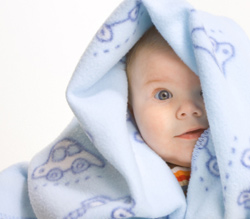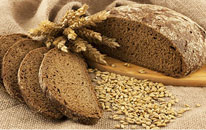Amazing Things Your Baby Knows

by Peg Rosen
They may not be able to read or write, but babies and toddlers are a far cry from the cute-but-clueless lumps that experts at one time believed they were. “Advances in neuroscience and new methodologies are showing us that children are active learners long before they can express that fact through language,” says Diane Bales, an associate professor at The University of Georgia in Athens and the co-director of the educational group Better Brains for Babies.
Here are a few of the surprising research findings on what your baby knows:
- Baby knows something was there, even if it’s gone. Researchers from Johns Hopkins University and Rutgers University have debunked the old idea that when something’s out of an infant’s sight, the baby thinks it ceases to exist. When researchers switched a triangular block for a square one behind a screen, the young babies didn’t notice the swap. But when they removed the block without replacing it, the babies were surprised to see nothing behind the screen.
- Baby knows some noises are perfectly human. According to a 2011 study published in Current Biology, babies between 3 and 6 months of age zero in on all kinds of human sounds, including mundane ones like coughs and yawns. For researchers, that suggests that the brain’s temporal cortex is more mature at this age than previously believed. For babies, it may simply be a survival instinct: “A toy may sound fun, but it’s not going to provide the protection and nurture that a human being will,” says Bales.
- Baby knows different word patterns mean different things. While 12-month-olds may not understand your exact words, they recognize some of your speaking patterns, according to a study from the University of Notre Dame. For example, when you say “It’s a … ” they know that some kind of object will follow. The research shows that picking up on patterns helps pave the way for word learning, according to researcher Jill Lany.
- Baby knows what worked there may also work here. It doesn’t take long for babies to learn how to transfer knowledge from prior experience to new situations. In a study at Ohio State University in Newark, a group of 8- and 16-month-olds learned to expect a surprising new shape at the end of a sequence of green squares. But when researchers played a sequence of sounds to the babies, only the 18-month-olds paid special attention to the end to see if there would be a surprise there too.
Parental interaction is key to early learning, says Bales: “It may feel silly talking to a 6-month-old, but make no mistake: They are taking it in.”
Peg Rosen has contributed to numerous magazines and websites, including Healthy Kids, MORE, Redbook, SELF, Real Simple, Parents, Family Circle, American Baby, ParentCenter.com and WebMD.com. She blogs at Relish-This.Blogspot.com.




